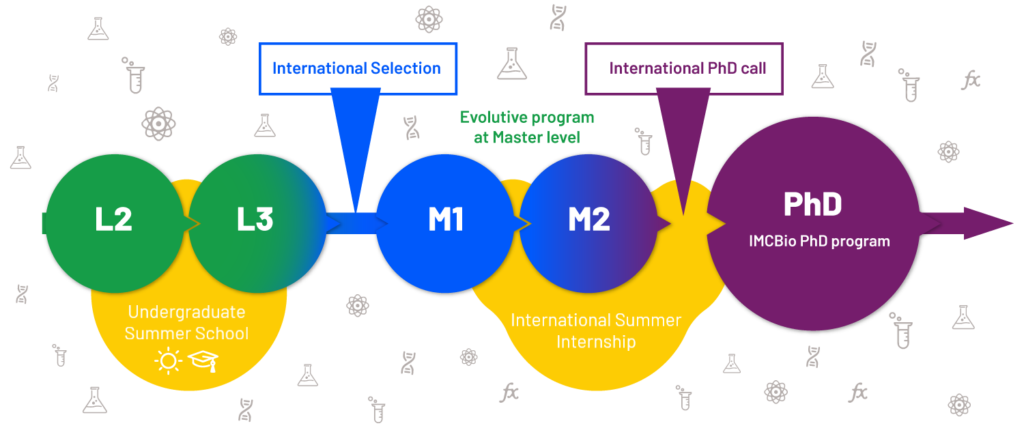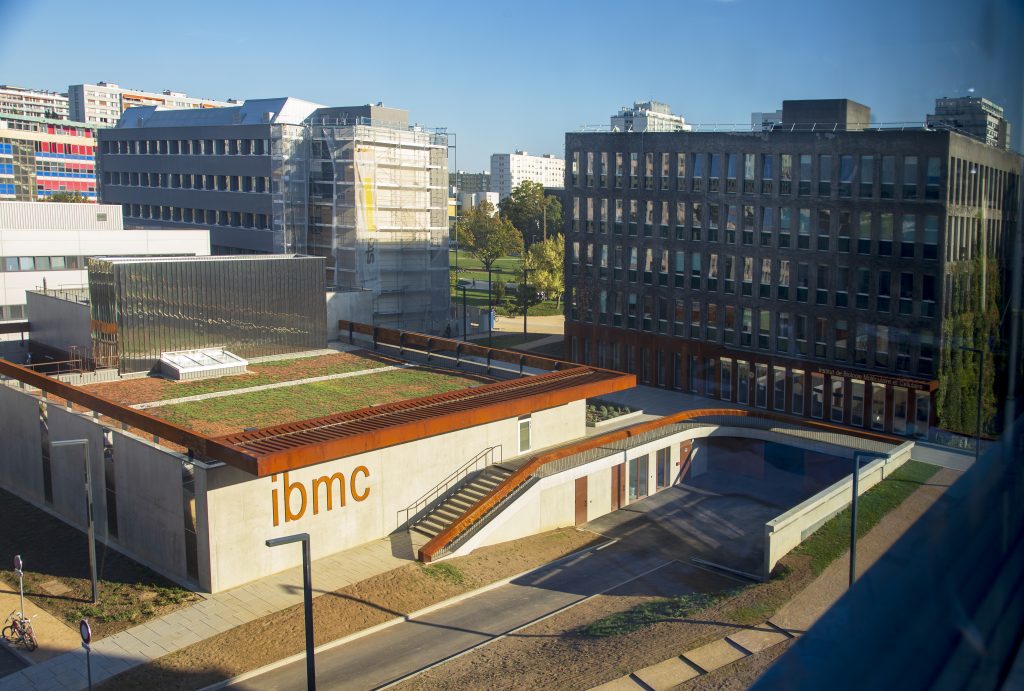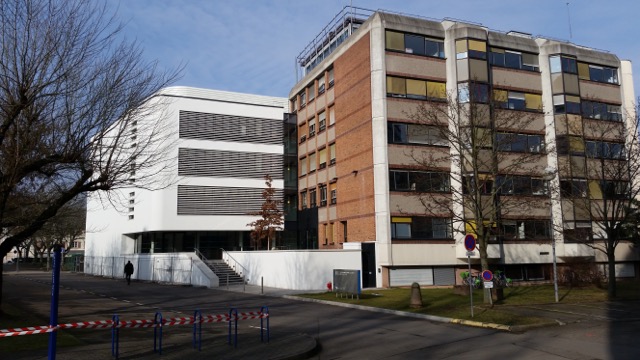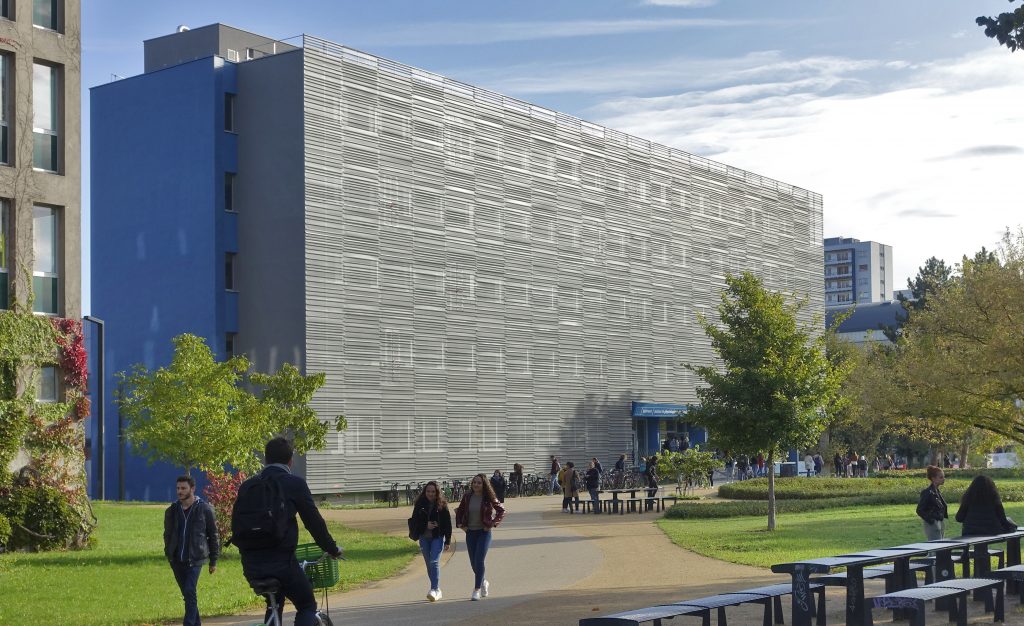Objectives of the IMCBio graduate school
The IMCBio graduate school aims to educate the leading researchers of tomorrow, who will share their scientific and soft skills to inspire others. Our ambition is to give the possibility to the new generation of students to build a unique expertise at the interfaces in biology.

How? The IMCBio graduate school interconnects excellence research and education through specific actions at both Master and PhD levels.
4 Research Clusters (LabEx)
The IMCBio graduate school is built on 4 main research groups: the Research Clusters (former Laboratories of Excellence) federating 5 research Institutes. These groups share a common vision of the training management in basic and medical biology. This strategic grouping covers all areas of modern biology at level of genes, cells and organisms, from model systems to diseases. We offer a large set of opportunities to join the world of molecular and cellular biology!






© Inserm – Patrice Latro
Building on top-level research, the IMCBio graduate school benefits also from state-of-the-art technological platforms shared between 5 research institutes. This exceptional set of facilities contribute further to the inspiring international environment to initiate and develop unique research projects.
Thanks to the creation of the « European Campus » in 2016, the University of Strasbourg offers an international environment of excellence. Administrative aspects of the cross-border mobilities are facilitated. Further, as students of the IMCBio graduate school, you can benefit from several opportunities to go abroad for internships or for specific PhD trainings.
Executive Committee
The Executive Board involving the IMCBio Director, the IMCBio Deputy Director, the Project Manager and the 4 Directors of the research clusters will ensure the planning and the follow-up of the good implementation of the operational activities according to the strategic decisions taken by the Steering Committee.
Governance
As the graduate school is linking research and education, the management relies on different boards, each having a dedicated mission.
PhD Committee
The PhD committee, nominated by the steering committee, is composed of representatives of 4 Research Clusters.
It oversee the qualifying exam (pre-selection of at least 30 candidates) and evaluate written and oral applications.
- Elisa Bergamin (PI IGBMC)
- Laurence Drouard (PI IBMP)
- Minchul Kim (PI IGBMC)
- Heike Lange (Researcher IBMP)
- Pascale Romby (PI ARN)
- Fabien Alpy (PI M3I)
- Hervé Moine (PI IGBMC)
- Marie Sissler (Researcher GMGM)
- Angelica Vieira (Researcher U1110)
- Albert Weixlbaumer (PI IGBMC)
Master Committee
The Master Committee, nominated by the Steering committee, rule on the eligibility criteria to integrate IMCBio Graduate School program and validate the IMCBio M1 and M2, and the final IMCBio Graduate School Master degree. It is also in charge of selecting entries in M1 and new entries in 2.
- Hubert becker (Professor GMGM)
- Luc Bonnefond (Researcher IGBMC)
- Anne Friedrich (Associated professor GMGM)
- Dominique Gagliardi (PI IBMP)
- Juliette Godin (PI IGBMC)
- Sophie Jarriault (Researcher IGBMC)
- Gilles Laverny (PI IGBMC)
- Cédric Romilly (Associated professor NetRNA)
- Eloi Verrier (Researcher U1110)
Scientific Advisory Board
The Scientific Advisory Board constitute the external expert advisory body. It include external members who provide strategic inputs through yearly meetings and on a project basis.
- Pr Robert N. Lightowlers (University of Newcastle)
- Pr Oliver Mülhemann (University of Bern)
- Pr Marc Timmers (University of Freiburg)










